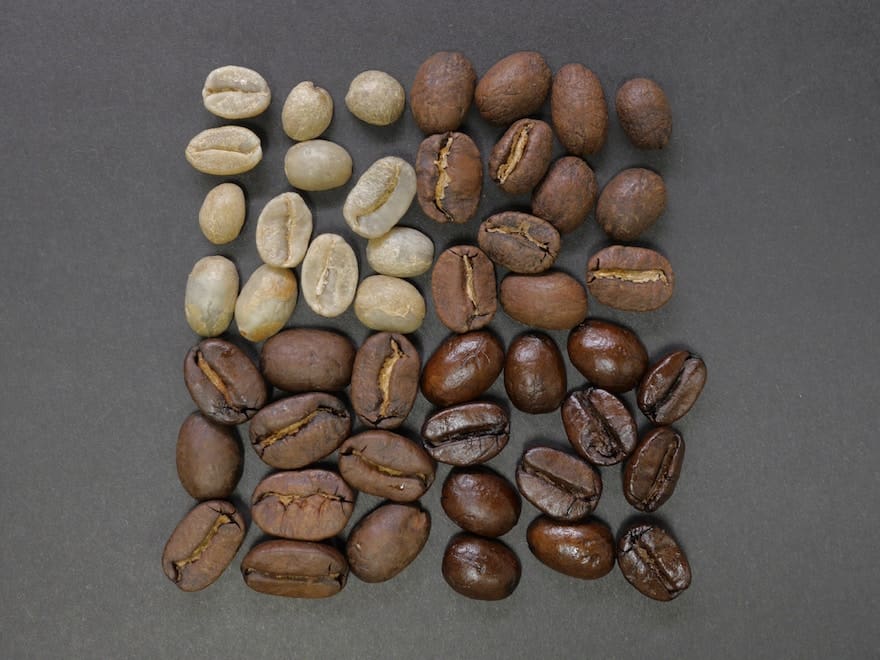Last Updated on January 17, 2024
The smell of a freshly brewed cup of coffee is always nice to wake up to, but what if that coffee isn’t waking you up?
You may feel like the odd one out if coffee isn’t having the same awakening effect for you that it seems to have for so many people.
Here are seven reasons why you might not be getting a perk from your coffee:
6 Reasons Your Coffee Might Not Be Waking You Up
1. Lack Of Sleep
Inadequate sleep is the No. 1 reason you might be missing that boost from coffee. Simply put, your tiredness could be overriding caffeine’s effects.
If you drink coffee regularly, caffeine could also be interfering with your sleep quality. This creates a cycle of dependency: Caffeine keeps you up at night, making you tired during the day, which prompts you to drink more coffee to perk up, which disrupts your sleep, etc…

So getting enough sleep is job number one. Yes, coffee is a nice stimulant, but it’s not a miracle-worker. If it’s not working for you, you might just need more sleep.
2. Tolerance to Caffeine
Caffeine tolerance means you’re unlikely to experience the unwanted side effects of caffeine, such as jitters. That’s the good news. The bad news is, it’s probably not going to do much to wake you up.
So how does caffeine tolerance happen?
Let’s think about how caffeine works. Every cell in your body has little proteins known as adenosine receptors. Think of them as little docks, and the ship that docks in them is a chemical called adenosine.
Adenosine slows down neural activity when it “docks” in these receptors. That’s what makes you feel drowsy or sleepy.
Caffeine also fits nicely into those adenosine receptors, and it doesn’t do anything to slow down neural activity. So when you drink coffee, the caffeine is like a trespassing ship that prevents adenosine from docking in its usual spot. Your neural activity is not slowed, and you don’t get drowsy or sleepy. You feel alert.

If you’re a heavy coffee drinker, eventually your body will respond by producing more adenosine receptors. You build more docks. Once again, adenosine has places to bind and the effects of caffeine become muted. This was discovered in a 1983 study out of the National Institute of Mental Health.
If you want to avoid building up caffeine tolerance so you can always rely on a coffee boost, you should reduce your overall caffeine intake and/or take regular breaks from coffee consumption.
3. Dehydration
Have you ever tried physical activity on a hot day without enough water? You get dehydrated, and you fatigue very easily. You might be dehydrated if you’re not getting a boost from your coffee.
Remember, caffeine is also a diuretic which helps rid your body of water and salt. That’s why it makes you pee a lot.
If you’re a bit dehydrated, a diuretic like caffeine will make you even more so. It’s no wonder you can feel fatigued.
Drink plenty of water throughout the day to stay hydrated and allow your coffee to do its thing.
4. Genetic Variations in Caffeine Sensitivity
Our genes help shape our adenosine receptors, which is one of the reasons some people are naturally more or less sensitive to caffeine. If you’ve never gotten much of a boost from coffee, you may just be one of those people whose adenosine receptors aren’t greatly affected by caffeine.

Try to understand your genetic predisposition to caffeine sensitivity, and you’ll be better able to manage your caffeine intake.
5. Time of Day
Caffeine can have different effects at different times of the day. Your body has natural circadian rhythms that govern alertness levels throughout any 24-hour period. If your coffee consumption is in conflict with those rhythms, it might not do much to wake you up.
And as we’ve discussed, drinking coffee later in the day can interfere with sleep quality, making it harder to feel the effects of caffeine the following day
6. Type of Coffee
The type of coffee you drink can affect caffeine content. The caffeine in coffee beans undergoes conversion to other compounds when the beans are roasted. The longer they’re roasted, the more caffeine is converted. This means lighter roasts will have more caffeine and darker roasts will have less. If you’re not getting a boost from your coffee, try a lighter roast.

Robusta beans also have more caffeine than arabica beans. Switching from arabica to a blend that includes a significant proportion of robusta might increase your chances of feeling that jolt. Most blends that are explicit labelled espresso will contain some robusta.
The bottom line is that coffee isn’t magic, despite how many of us feel about it. It’s just chemistry, and all chemical compounds we ingest are affected by what else is going on in our bodies.
By paying attention to what’s going on in your body, you should eventually be able to find the right balance that allows coffee to give that energy boost when you require it.

